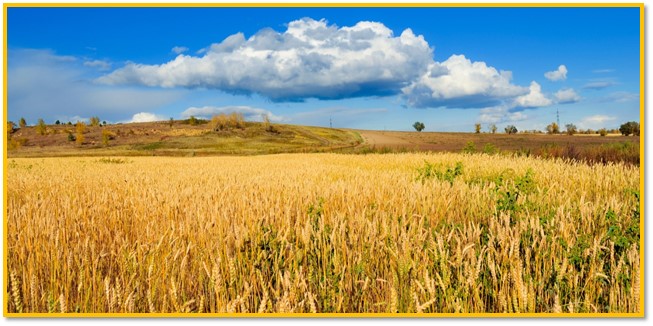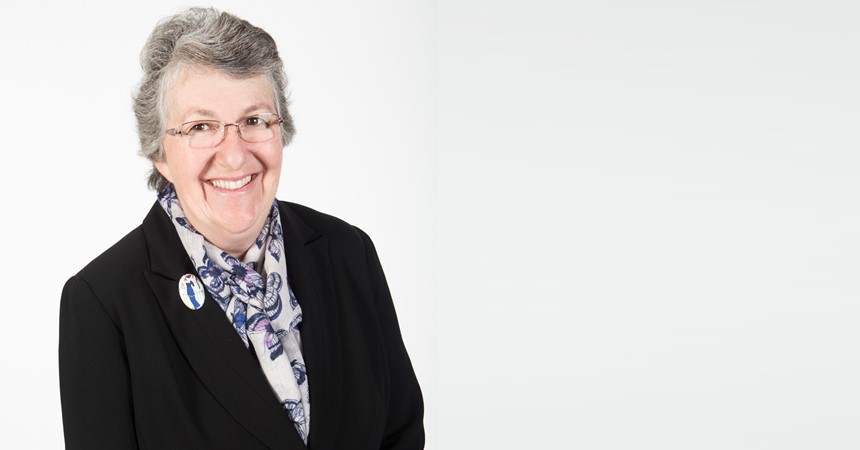The purpose of these trips is to engage communities in focus group dialogue, in response to an invitation from Pope Francis to provide feedback to the Preparatory Document – Young People, the Faith and Vocational Discernment, as part of the synodal process leading to the Youth Synod of 2018.
Disappointingly, very few people have gathered but those who have were keen to participate in the dialogue around the questions posed at the end of the Preparatory Document. At the beginning of the process, I read the letter from Pope Francis to the young people and I thought it would make good reading for this week’s message, as it spoke to me, as I hope it now speaks to you.

My Dear Young People,
I am pleased to announce that in October 2018 a Synod of Bishops will take place to treat the topic: “Young People, the Faith and Vocational Discernment.” I wanted you to be the centre of attention, because you are in my heart. Today, the Preparatory Document is being presented, a document which I am also entrusting to you as your “compass” on this synodal journey.
I am reminded of the words which God spoke to Abraham: “Go from your country and your kindred and your father's house to the land that I will show you.” (Gen 12.1). These words are now also addressed to you. They are words of a Father who invites you to “go”, to set out towards a future which is unknown but one which will surely lead to fulfilment, a future towards which He Himself accompanies you. I invite you to hear God's voice resounding in your heart through the breath of the Holy Spirit.
When God said to Abram, “Go!”, what did he want to say? He certainly did not say to distance himself from his family or withdraw from the world. Abram received a compelling invitation, a challenge, to leave everything and go to a new land. What is this “new land” for us today, if not a more just and friendly society which you, young people, deeply desire and wish to build to the very ends of the earth?
But unfortunately, today, “Go!” also has a different meaning, namely, that of abuse of power, injustice and war. Many among you are subjected to the real threat of violence and forced to flee their native land. Their cry goes up to God, like that of Israel, when the people were enslaved and oppressed by Pharaoh (cf. Ex 2:23).
I would also remind you of the words that Jesus once said to the disciples who asked him: “Teacher [...] where are you staying?” He replied, “Come and see” (Jn 1:38). Jesus looks at you and invites you to go with him. Dear young people, have you noticed this look towards you? Have you heard this voice? Have you felt this urge to undertake this journey? I am sure that, despite the noise and confusion seemingly prevalent in the world, this call continues to resonate in the depths of your heart so as to open it to joy in its fullness. This will be possible to the extent that, even with professional guides, you will learn how to undertake a journey of discernment to discover God's plan in your life. Even when the journey is uncertain and you fall, God, rich in mercy, will extend his hand to pick you up.
In Krakow, at the opening of the last World Youth Day, I asked you several times: “Can we change things?” And you shouted: “yes!”. That shout came from your young and youthful hearts, which do not tolerate injustice and cannot bow to a “throw-away culture” nor give in to the globalisation of indifference. Listen to the cry arising from your inner selves! Even when you feel, like the prophet Jeremiah, the inexperience of youth, God encourages you to go where He sends you: “Do not be afraid, [...], because I am with you to deliver you” (Jer 1:8).
A better world can be built also as a result of your efforts, your desire to change and your generosity. Do not be afraid to listen to the Spirit who proposes bold choices; do not delay when your conscience asks you to take risks in following the Master. The Church also wishes to listen to your voice, your sensitivities and your faith; even your doubts and your criticism. Make your voice heard, let it resonate in communities and let it be heard by your shepherds of souls. St. Benedict urged the abbots to consult, even the young, before any important decision, because “the Lord often reveals to the younger what is best.” (Rule of St. Benedict, III, 3).
Such is the case, even in the journey of this Synod. My brother bishops and I want even more to “work with you for your joy” (2 Cor1:24). I entrust you to Mary of Nazareth, a young person like yourselves, whom God beheld lovingly, so she might take your hand and guide you to the joy of fully and generously responding to God’s call with the words: “Here I am” (cf. Lk 1:38).
With paternal affection,
FRANCIS
Our first gathering at Windale was preceded by the parish evening Mass on the Feast of St Benedict, who certainly listened to God’s voice in establishing the Rule for monastic living, based on sacred reading, prayer and contemplation. The first reading (Genesis 32:23-33) of that day was the one in which Jacob was left with a  dislocated hip after wrestling with God and being re-named Israel. I wonder how many of us wrestle with God, and during this week of conversations with and about young people, I wonder how many even know to wrestle with God. The end to the gospel reading of that day was,
dislocated hip after wrestling with God and being re-named Israel. I wonder how many of us wrestle with God, and during this week of conversations with and about young people, I wonder how many even know to wrestle with God. The end to the gospel reading of that day was,
‘the harvest is rich but the labourers are few, so ask the Lord of the harvest to send labourers to his harvest.’ (Mt 9:38).

And during our Sunday Mass we listened again to the great parable of the sower (Mt 13:24-43). I noted during that reading Jesus speaks the words of the prophet Isaiah:
You will listen and listen again but not understand,
see and see again, but not perceive.
for the heart of this nation has grown coarse,
their ears are dull of hearing,
and they have shut their eyes,
for fear they should see with their eyes,
hear with their ears,
understand with their heart,
and be converted
and be healed by me.
I think those of us who are gathering for the conversations around youth are trying to hear, see and understand in a context, a belief system that has grown coarse. Has this made us deaf, blind and heartless?
I then came across this, while reading Richard Rohr’s Daily Meditations for this week, in which he is attempting to unpack ‘A System of Beliefs or A Way of Life’.
The terms belief and faith are often used synonymously. Yet they are very different. As David Benner says, “Belief is conviction of the trustworthiness of a proposition. . . . Faith, on the other hand, can never be reduced to beliefs or thoughts. . . . Beliefs are often simply objects of attachment that provide a misleading sense of certainty.” Faith welcomes unknowing and mystery. Unfortunately, Christianity has settled for dogma, rituals, and tribal belonging, losing sight of the transformative way of faith.
For centuries, Christianity has been presented as a system of beliefs. That system of beliefs has supported a wide range of unintended consequences, from colonialism to environmental destruction, subordination of women to stigmatization of LGBT people, anti-Semitism to Islamophobia, clergy paedophilia to white privilege. What would it mean for Christians to rediscover their faith not as a problematic system of beliefs, but as a just and generous way of life, rooted in contemplation and expressed in  compassion, that makes amends for its mistakes and is dedicated to beloved community for all? Could Christians migrate from defining their faith as a system of beliefs to expressing it as a loving way of life?
compassion, that makes amends for its mistakes and is dedicated to beloved community for all? Could Christians migrate from defining their faith as a system of beliefs to expressing it as a loving way of life?
And so I finish with this great prayer from St Teresa of Avila, lest we become too disillusioned; however I am eager to meet the prophets of our time, here in this place:
Let nothing disturb you,
Let nothing frighten you,
All things are passing:
God never changes.
Patience obtains all things
Whoever has God lacks nothing;
God alone suffices.
—St. Teresa of Avila (1515-1582)

